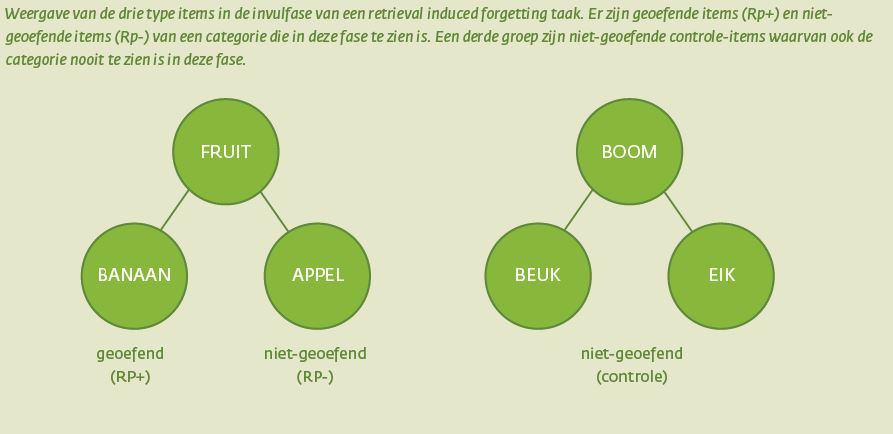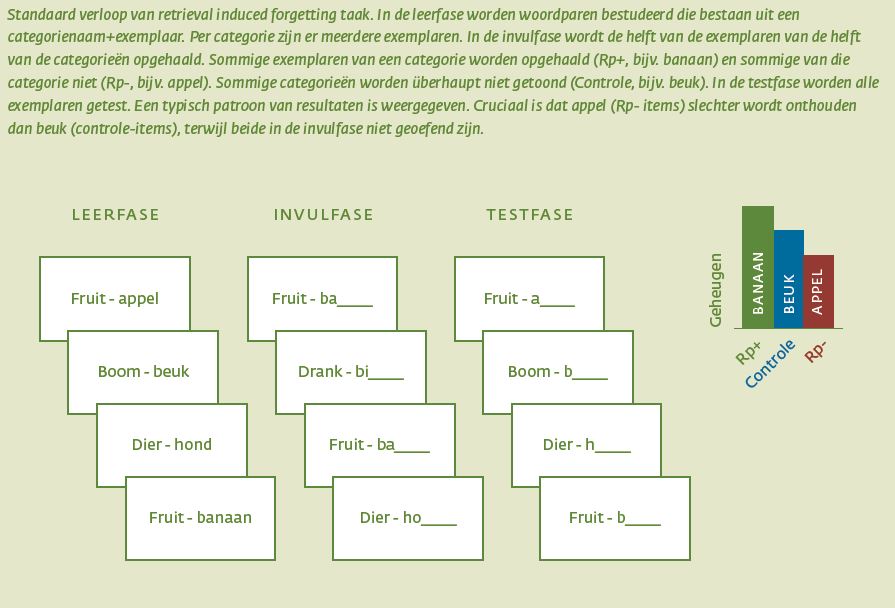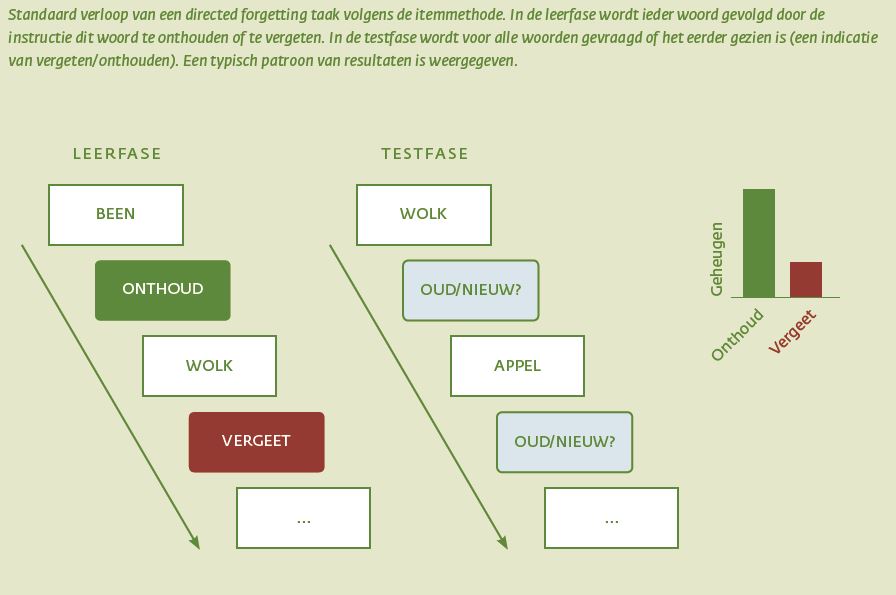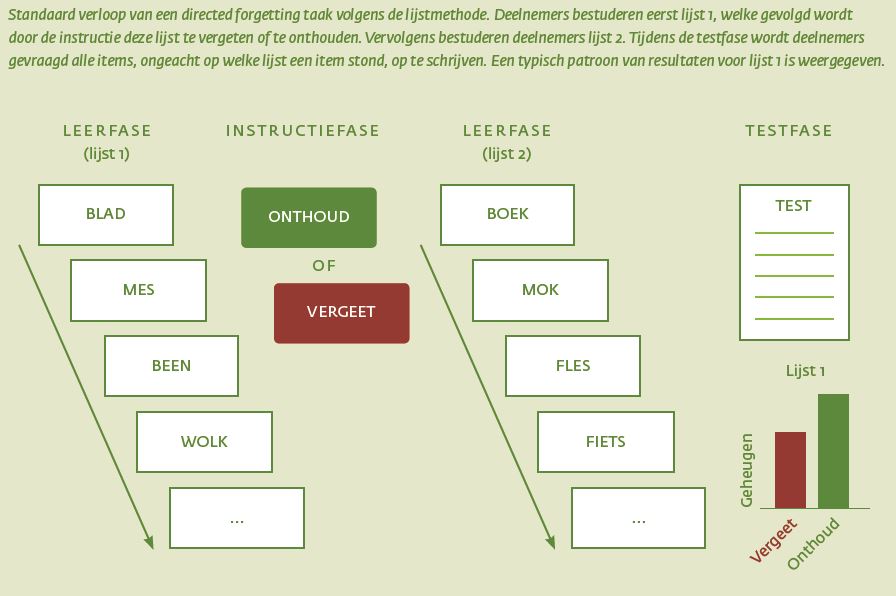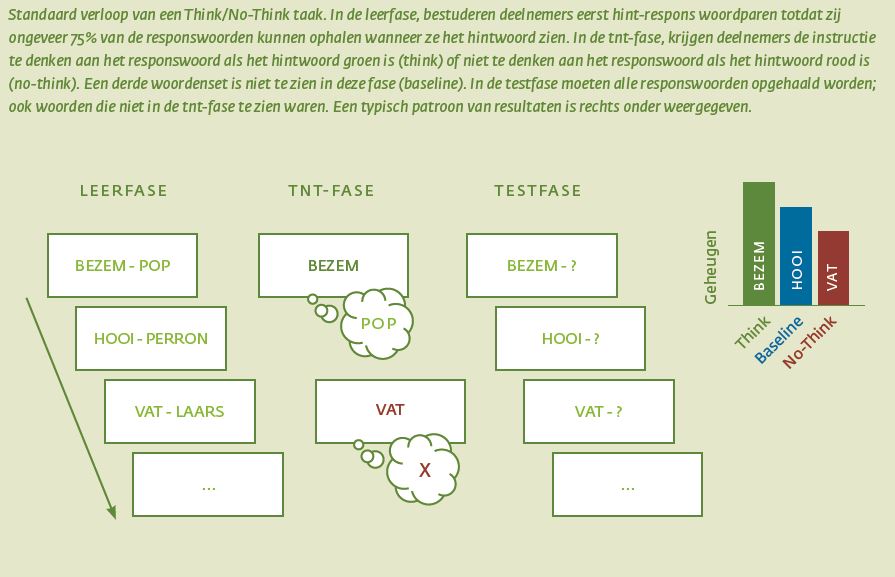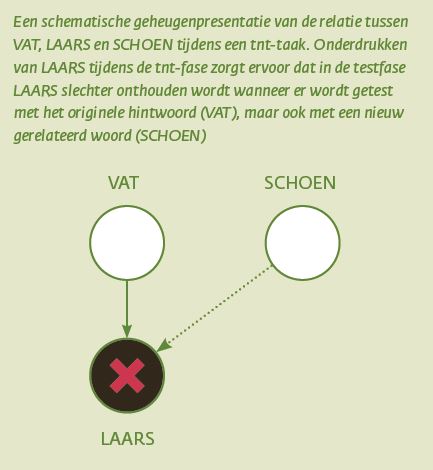Van de dingen die we meemaken, vergeten we er veel. Dat heeft iets praktisch: wie de inkopen van afgelopen jaar dag voor dag zou herinneren, zou in de war raken. Dat vergeten gaat vanzelf. Maar kunnen we ook doelbewust en weloverwogen zaken vergeten? Van de voorvallen die we meemaken zijn er een aantal vervelend. En het terugdenken eraan ook. Als we in staat zouden zijn die akelige gebeurtenissen te wissen, of ontoegankelijk te maken, dan mag verwacht worden dat mensen op enige schaal gebruik maken van zo’n vermogen.
Het freudiaanse gedachtengoed suggereert dat mensen inderdaad in staat zijn tot ‘verdringing’: het buiten het bewustzijn brengen of houden van, onder meer, onplezierige herinneringen (Freud, 1915/1957)28. Individuen zouden verdringing weliswaar niet weloverwogen inzetten, maar het zou wel degelijk gaan om ‘gemotiveerd vergeten’. Het idee dat verdringing bestaat en na het meemaken van nare gebeurtenissen op schaal van betekenis optreedt, wordt aangehangen door een fikse meerderheid van rechters

